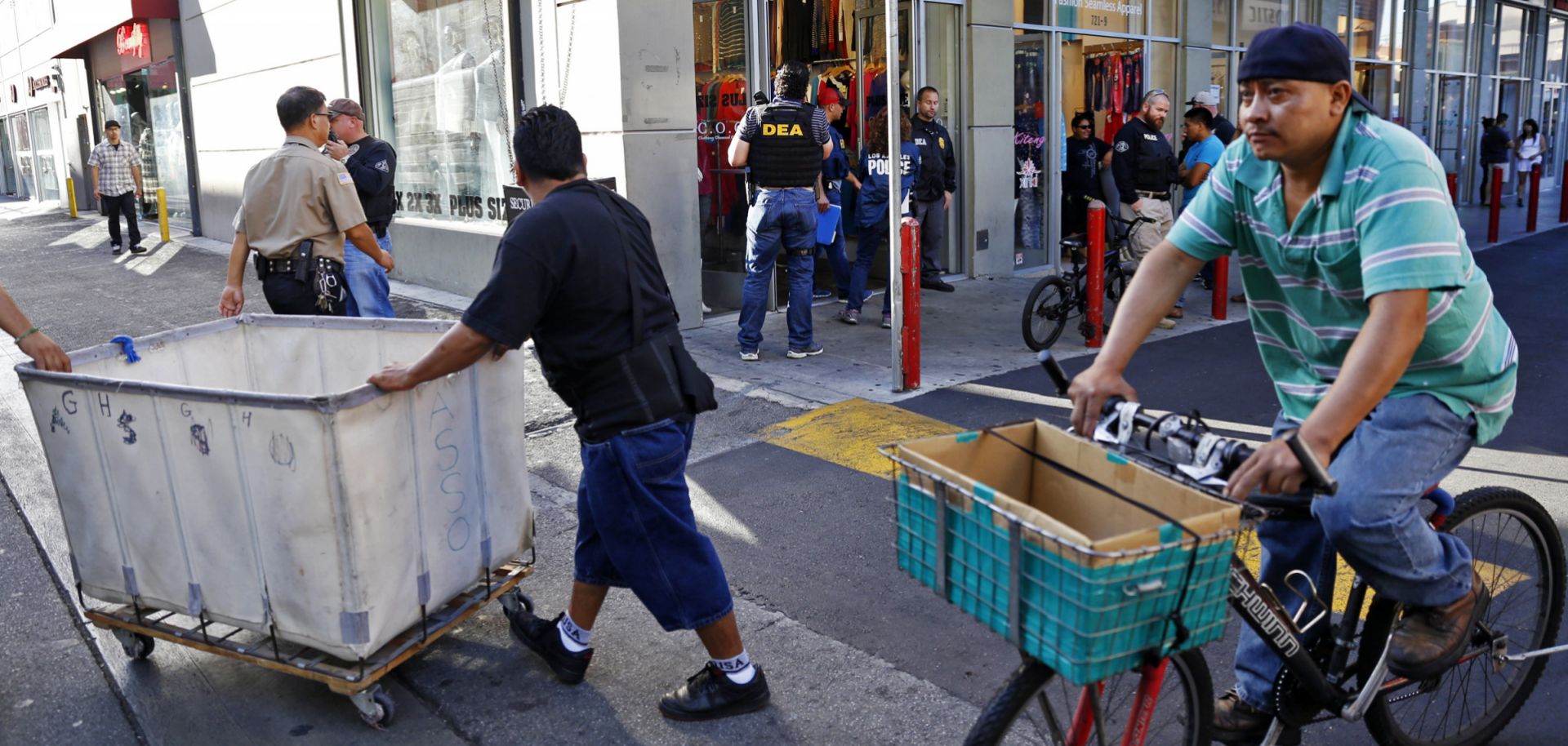GLOBAL PERSPECTIVES
Tariffs, Sanctions and the Problem of Trade-Based Money Laundering

Nov 29, 2019 | 09:30 GMT

Federal agents and local police officers raid a business in Los Angeles' fashion district on Sept. 10, 2014, as part of an investigation into alleged 'trade-based money laundering' by Mexican drug cartels. Authorities say the cartels use businesses to convert their narcotics profits into pesos.
(AL SEIB/Los Angeles Times via Getty Images)
Highlights
- As anti-money laundering rules for financial institutions expand and enforcement improves, illicit money transfers are increasingly disguised as commercial transactions. This is called trade-based money laundering (TBML).
- Trade wars, tariffs and sanctions drive many states, individuals and multinational firms to pursue international commercial trade using TBML methods that evade U.S. customs and financial centers.
- If trade tensions and sanctions worsen, so will the problems of TBML, but when things improve, TBML will remain.
- New technologies can counter TBML activities, but efforts will have limited efficacy without public-private international information sharing.
Subscribe Now
SubscribeAlready have an account?
